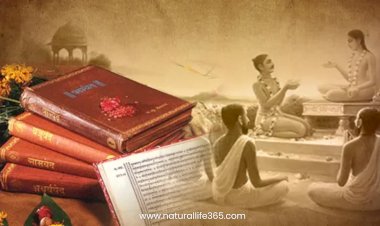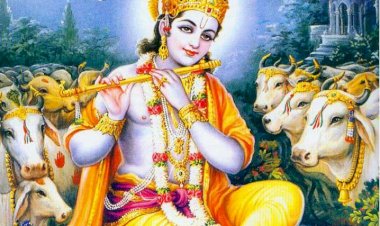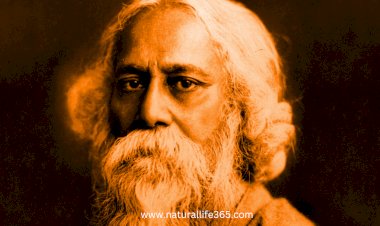How To Live In The World Without Suffering? Hinduism Answers
Explore profound insights from Hinduism on living in the world without suffering. Discover ancient wisdom and practical guidance to navigate life's challenges with resilience and inner peace.

As I navigate the complexities of existence, I often find myself grappling with the age-old question: How can one live in this world without succumbing to its inherent suffering? It's a query that has echoed through the corridors of time, resonating deeply within the human psyche. In my quest for answers, I turned to the wisdom of Hinduism, a profound spiritual tradition that offers profound insights into the nature of suffering and the path to liberation.
In this blog, we embark on a journey into the heart of Hindu philosophy, seeking solace amidst the storms of life. Drawing from ancient scriptures, profound teachings, and timeless wisdom, we unravel the mysteries of suffering and explore pathways to transcendence. Join me as we delve into the depths of the human experience, guided by the illuminating beacon of Hinduism's timeless truths.
Understanding Suffering in Hinduism
Suffering is a pervasive aspect of human existence, woven into the very fabric of life. In Hinduism, this concept is encapsulated in the term "Dukkha," which acknowledges suffering as an inherent part of the human condition. To truly comprehend suffering in Hinduism, one must delve into its philosophical underpinnings and intricate worldview.
The Concept of Dukkha
Dukkha encompasses various forms of suffering, ranging from physical pain to emotional anguish and existential discontent. According to Hindu philosophy, Dukkha arises from the inherent impermanence (Anitya) and unsatisfactoriness (Anatman) of worldly phenomena. No matter how much we strive for pleasure or avoid pain, the transient nature of existence inevitably leads to suffering.
Karma and Suffering
Central to Hindu understanding is the concept of Karma, which posits that our actions have consequences that shape our present and future experiences. Suffering, therefore, is often seen as the result of past actions (Karmic debt) or the consequences of our current deeds. By understanding the intricate web of Karma, individuals can gain insight into the root causes of their suffering and work towards liberation.
The Cycle of Birth and Death (Samsara)
Hinduism elucidates the cyclical nature of existence through the concept of Samsara, wherein souls undergo a perpetual cycle of birth, death, and rebirth. Suffering is intricately intertwined with this cycle, as beings traverse through various life forms, encountering joy, sorrow, and everything in between. Liberation from Samsara (Moksha) is often seen as the ultimate transcendence of suffering, marking the culmination of spiritual evolution.
Paths to Liberation from Suffering
In my quest to transcend suffering, I have found solace in the multifaceted paths to liberation outlined in Hindu philosophy. These paths offer diverse approaches to alleviate suffering and attain spiritual enlightenment, catering to the unique inclinations and temperaments of individuals.
The Path of Knowledge (Jnana Yoga)
Jnana Yoga emphasizes the cultivation of wisdom and self-realization as a means to overcome suffering. Through introspection, philosophical inquiry, and the study of sacred texts such as the Upanishads, practitioners seek to discern the underlying truth of existence and transcend the illusion of separateness. By realizing the inherent unity of the self (Atman) and the ultimate reality (Brahman), one can attain liberation from suffering.
The Path of Devotion (Bhakti Yoga)
Bhakti Yoga centers on the cultivation of love, devotion, and surrender to a higher power. Devotees immerse themselves in prayer, ritual worship, and the chanting of sacred hymns to deepen their connection with the divine. Through unwavering devotion and heartfelt surrender, practitioners can transcend their egoic limitations and find solace in the unconditional love of the divine. Bhakti Yoga offers a path to liberation through the dissolution of the self in the ocean of divine grace.
The Path of Selfless Action (Karma Yoga)
Karma Yoga advocates for the path of selfless service and altruistic action as a means to transcend suffering. By performing one's duties with dedication, integrity, and detachment from the fruits of one's actions, practitioners purify their hearts and minds. Through the spirit of selflessness and compassion, individuals can transcend their egoic desires and find fulfillment in serving others. Karma Yoga offers a pathway to liberation through the dissolution of selfish desires and the realization of one's inherent unity with all beings.
The Role of Meditation and Mindfulness
Across all paths to liberation, the practice of meditation and mindfulness plays a crucial role in alleviating suffering and cultivating inner peace. Through meditation, practitioners quiet the fluctuations of the mind and cultivate awareness of the present moment. By observing the impermanent nature of thoughts, emotions, and sensations, individuals can develop equanimity and detachment from the transient nature of existence.
Practical Wisdom for Living Without Suffering
In the pursuit of a life free from suffering, Hindu philosophy offers practical wisdom and timeless teachings to navigate the challenges of existence with grace and resilience. Drawing from the rich tapestry of Hindu scriptures and spiritual traditions, here are some invaluable insights for cultivating inner peace and liberation from suffering:
Cultivating Detachment
Central to Hindu teachings is the principle of detachment (Vairagya), which encourages individuals to relinquish attachments to worldly possessions, desires, and outcomes. By recognizing the transient nature of material wealth and ephemeral pleasures, one can cultivate a sense of inner freedom and equanimity. Detachment allows individuals to navigate life's ups and downs with resilience and grace, transcending the grip of suffering rooted in attachment.
Finding Contentment in the Present Moment (Santosha)
Santosha, or contentment, is a foundational virtue in Hindu ethics that fosters gratitude and acceptance of the present moment. Rather than incessantly striving for external achievements or pleasures, practitioners of Santosha learn to find fulfillment and joy in the here and now. By cultivating an attitude of gratitude and embracing life's inherent abundance, individuals can experience profound peace and contentment amidst life's challenges.
Practicing Non-Violence (Ahimsa)
Ahimsa, or non-violence, lies at the heart of Hindu ethics and spirituality, emphasizing compassion, kindness, and harmlessness towards all living beings. By refraining from causing harm through thoughts, words, or actions, individuals can create an environment of peace and harmony within themselves and the world around them. Ahimsa not only alleviates the suffering of others but also nurtures inner peace and spiritual evolution.
Acceptance and Surrender to the Flow of Life (Ishvara Pranidhana)
Ishvara Pranidhana, or surrender to the divine will, invites individuals to relinquish the illusion of control and trust in the inherent order of the universe. By surrendering personal desires and agendas to a higher power, practitioners can find solace in the realization that everything unfolds according to divine providence. Surrendering to the flow of life allows individuals to release the burden of worry and resistance, embracing each moment with openness and serenity.
Incorporating these principles into daily life can profoundly transform one's relationship with suffering, paving the way for inner peace, fulfillment, and spiritual liberation. By embracing the wisdom of Hindu philosophy and embodying its timeless teachings, individuals can embark on a journey toward a life free from the shackles of suffering.
Stories and Examples from Hindu Scriptures
The rich tapestry of Hindu scriptures is replete with captivating narratives and illuminating anecdotes that offer profound insights into the nature of suffering and the path to liberation. Drawing from ancient texts such as the Vedas, Upanishads, Mahabharata, Ramayana, and Puranas, here are some compelling stories and examples that exemplify the timeless wisdom of Hindu philosophy:
The Story of Prince Siddhartha's Journey to Enlightenment
Central to Buddhist and Hindu traditions alike is the tale of Prince Siddhartha Gautama, who renounced his royal privileges in search of truth and liberation from suffering. Through years of rigorous asceticism and profound introspection, Siddhartha attained enlightenment beneath the Bodhi tree, transcending the cycle of birth and death (Samsara) and discovering the Four Noble Truths. His journey from worldly prince to enlightened sage serves as a poignant reminder of the transformative power of spiritual realization in alleviating suffering and attaining liberation.
Lessons from the Bhagavad Gita on Navigating Suffering and Duty
The Bhagavad Gita, often hailed as the quintessence of Hindu philosophy, unfolds against the backdrop of a battlefield, where Prince Arjuna grapples with moral dilemmas and existential despair. Through the timeless teachings of Lord Krishna, Arjuna gains clarity on the nature of duty (Dharma), the transient nature of life, and the path to self-realization. The Bhagavad Gita elucidates the importance of equanimity, selfless action, and devotion in navigating the challenges of life and transcending suffering.
Anecdotes of Saints and Sages Who Transcended Suffering Through Spiritual Practices
Throughout history, Hinduism has been enriched by the lives of countless saints, sages, and spiritual luminaries who embodied the teachings of the scriptures and attained liberation from suffering. From the selfless service of Swami Vivekananda to the devotional fervor of Mirabai, these luminous beings serve as beacons of inspiration for seekers on the spiritual path. Their stories exemplify the transformative power of faith, devotion, and selfless service in transcending suffering and realizing the eternal truth of existence.
As we close this chapter, let us not simply store away this wisdom, but let us actively engage with it and integrate it into our daily existence.
Together, let us sow the seeds of compassion, awareness, and transcendence, cultivating a future where peace and harmony reign supreme. The journey begins now, and each step we take brings us closer to the realization of a world free from suffering.
Are you ready to embark on this transformative journey? Let us walk this path together, guided by the profound wisdom of Hindu philosophy.
If you value these free online resources provided by Natural Life 365, please consider supporting my website by sharing the blogs ![]()







































